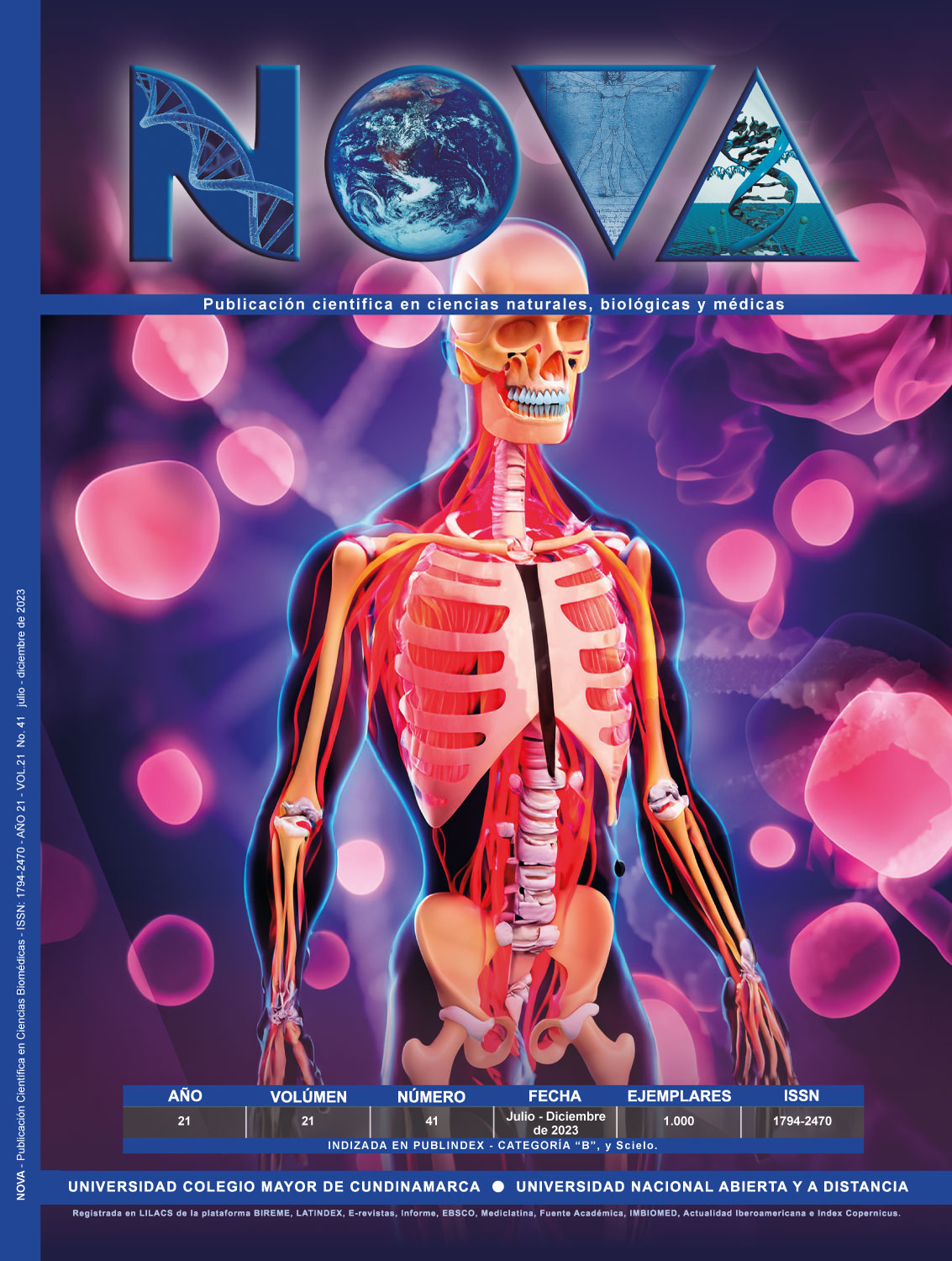Copyright (c) 2023 NOVA Biomedical Sciences Journal

This work is licensed under a Creative Commons Attribution-NonCommercial-NoDerivatives 4.0 International License.
NOVA por http://www.unicolmayor.edu.co/publicaciones/index.php/nova se distribuye bajo una licencia Reconocimiento No Comercial- Compartir igual
Así mismo, los autores mantienen sus derechos de propiedad intelectual sobre los artículos,
Declaración de privacidad.
Los nombres y las direcciones de correo electrónico introducidos en esta revista se usarán exclusivamente para los fines establecidos en ella y no se proporcionarán a terceros o para su uso con otros fines.
Importance of the dilution test in the dosageof coagulation factors XII and XI in plasma withpositive lupus anticoagulant
Introduction. Thrombosis is associated with acquired risk factors or hypercoagulable
states. Antiphospholipid antibodies are found in infectious processes or associated with
arterial or venous thrombosis. Among these is the lupus anticoagulant, which is conside-
red an interference inhibitor because it prolongs phospholipid-dependent tests in vitro.
Objectives. To relate the activity of factor XII and XI in patients with positive lupus anti-
coagulant. Methodology. Of 55 plasmas, 34 met the inclusion criteria. Factors XII and XI
were dosed by metric clot methods. Samples less than 50 Ul/dl are considered low factor
activity, to which the dilution test (parallelism) is performed. If a recovery greater than
15% of the factor is evidenced, it is considered interference. If, on the contrary, the result
remains with little variation, it is confirmed. factor deficiency. Results. Of 34 dosages,
79.4% (27/34) presented a decrease in factor XI. A dilution test was performed, and 100%
recovery of factor XI was observed; Regarding the dosage of factor XII, 29.4% (10/34)
presented values below 50 IU/dl and 70.6% (24/34) normal, did not recover in 22.2%
(2/9) presenting deficit. Conclusions. The study of a prolonged PTT is carried out due to
suspicion of lupus anticoagulant or factor deficiency. The importance of the laboratory is
that every time a decreased coagulation factor is found, plasma dilution must be done to
determine if there is recovery of the factor or is a deficit of this.









